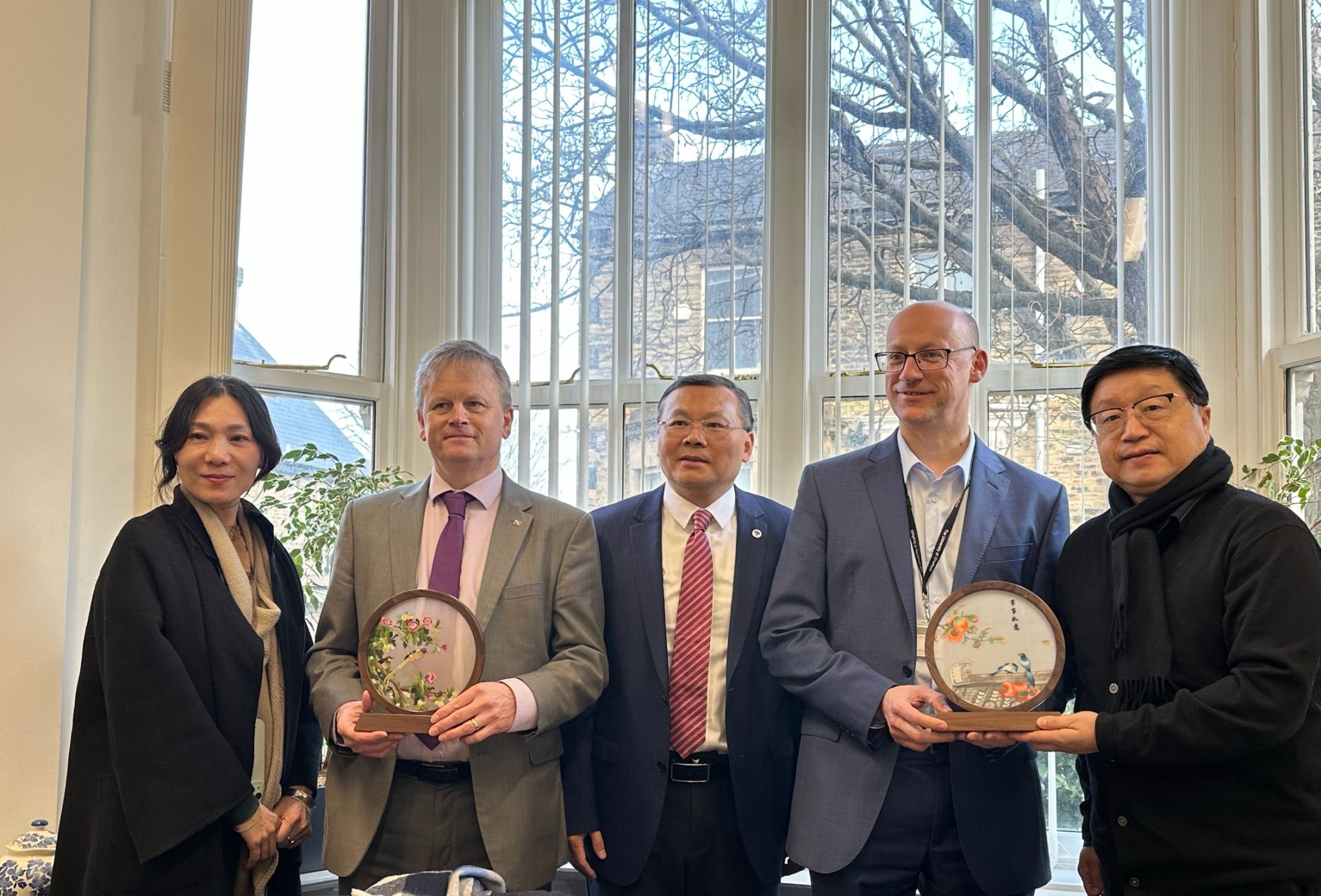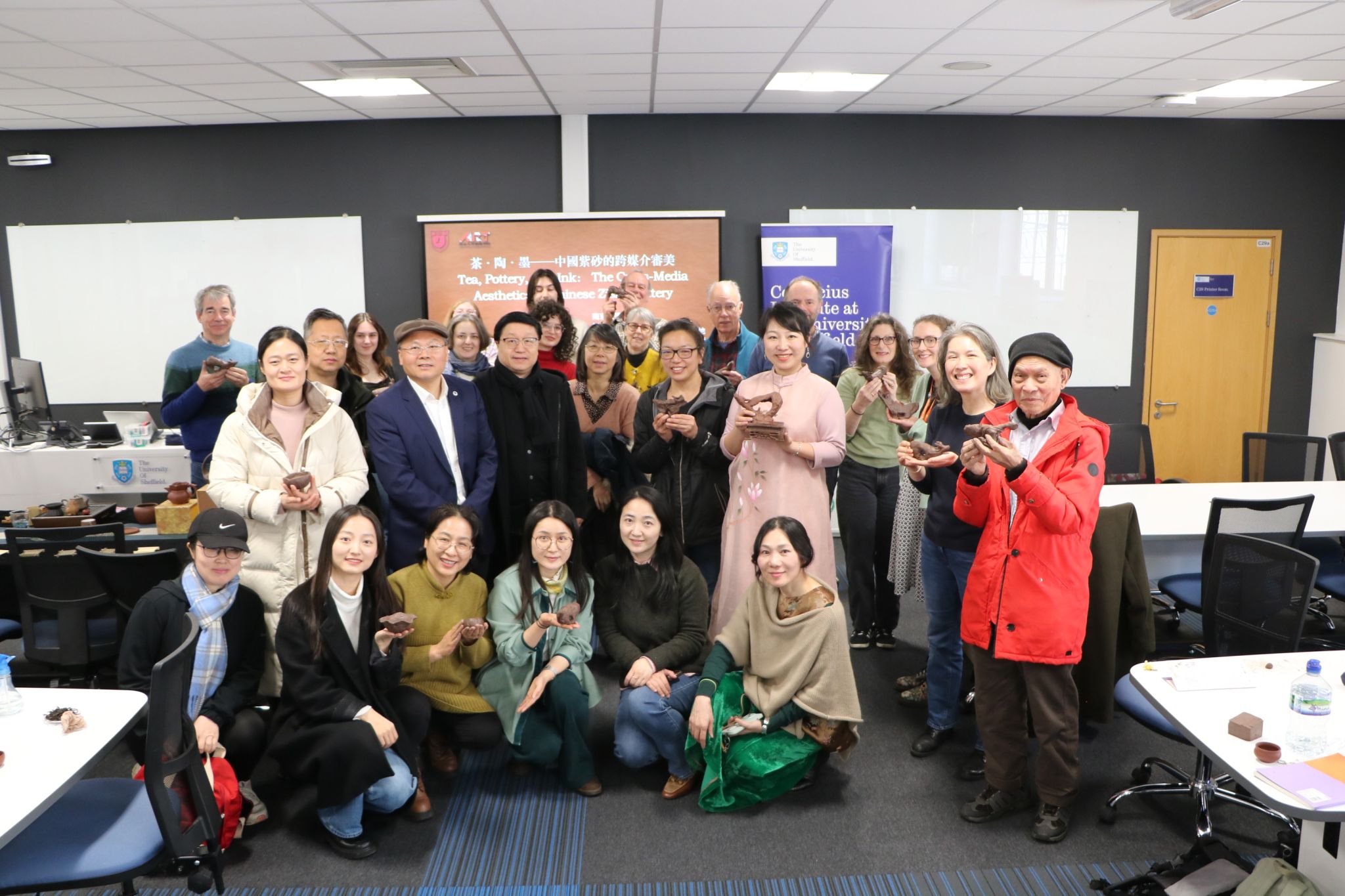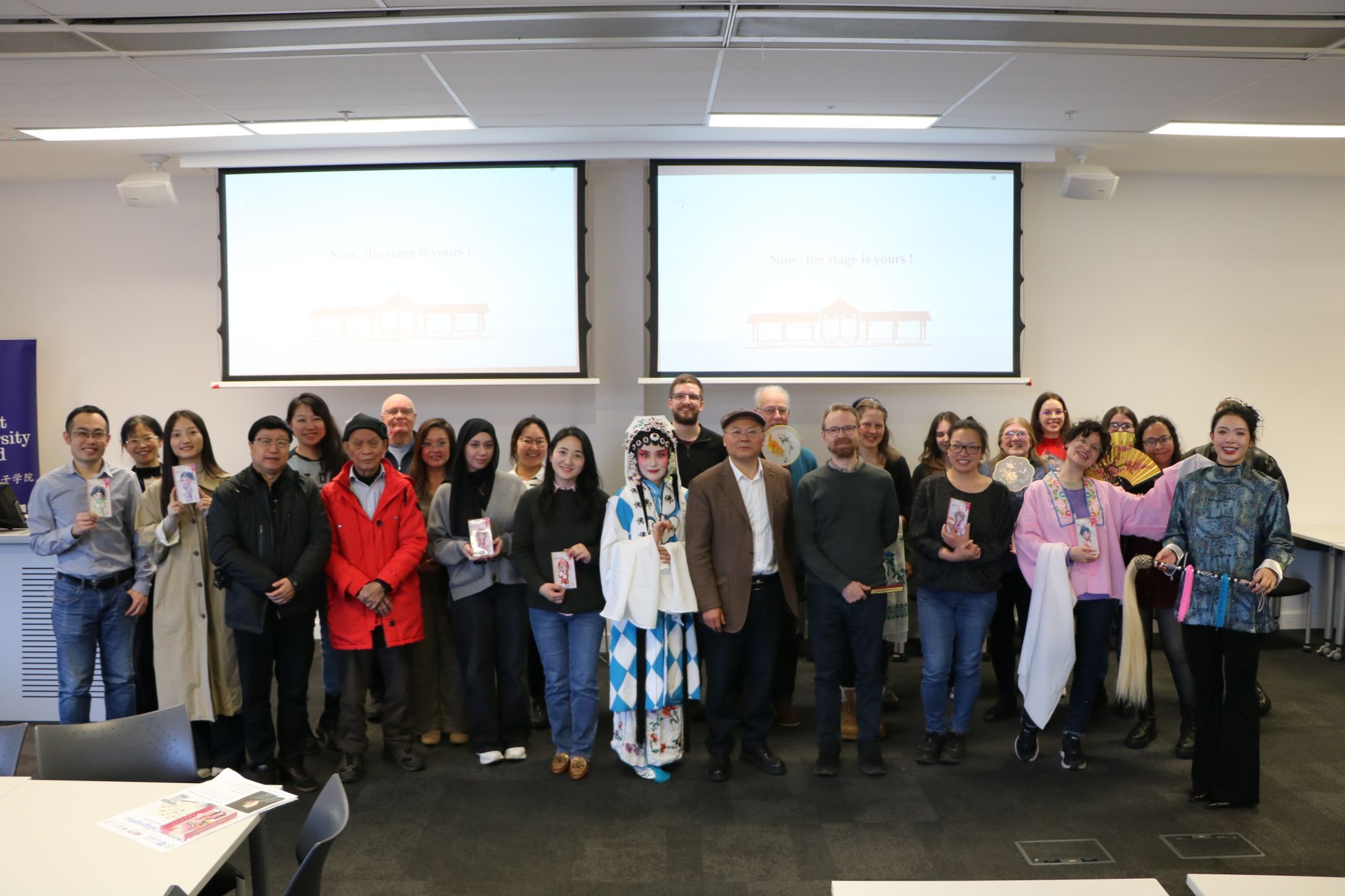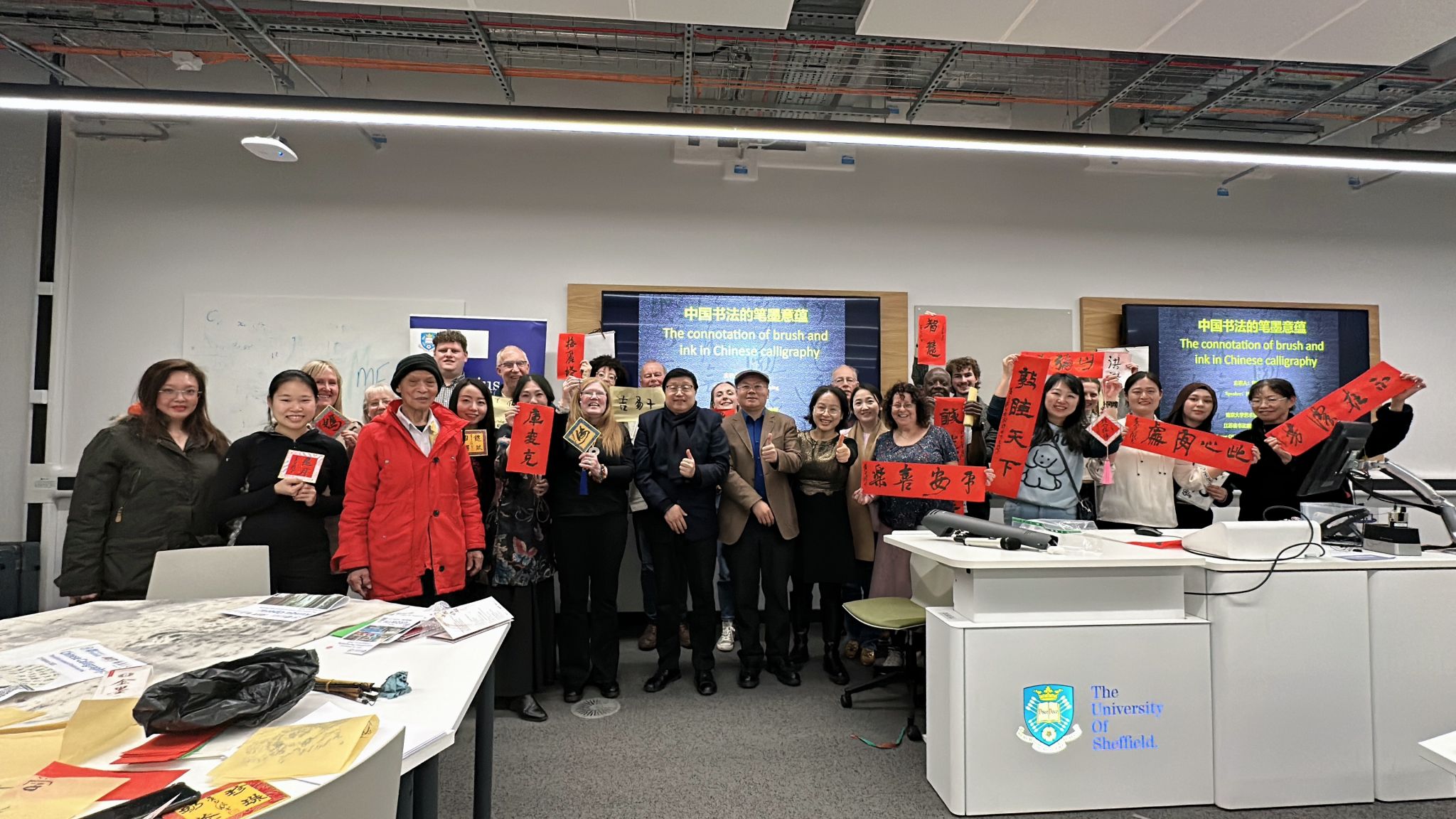Recently, a delegation from the School of Arts, Nanjing University visited the Confucius Institute of the University of Sheffield in UK and successfully organized the "Chinese Culture Week." Featuring themes of zisha clay, Kunqu opera and calligraphy. This series of activities demonstrated the unique charm of Chinese traditional culture to the British audiences, and served to promote Sino-British cultural exchanges and cooperation.
On the afternoon of February 25, 2025, local time, Dr Malcolm Butler, Vice Chancellor of the University of Sheffield, Andy Barker, British Co-Director of the Confucius Institute met with the delegation and extended a warm welcome. Both sides exchanged gifts and had an in-depth discussion on Chinese and western cultural exchanges and future cooperation. Wang Yong, Chinese Co-Director of the Confucius Institute and Associate Professor of NJU School of Arts attended the meeting.

After the meeting, the first event of "Chinese Culture Week" was held at the University of Sheffield's Portobello Center, John Carr Design Suite C29, with the theme of "Tea, Pottery and Ink: The Cross-Media Aesthetics of Chinese Zisha Clay Culture", presented by Yuan Shuai. The program was divided into three sections: an experience of the arts of tea, an academic lecture and zisha clay pottery workshop. Through this activity, participants understood that zisha clay culture is rooted in the tradition of tea culture, accomplished in the beauty of ceramics and associated with calligraphy, by experiencing the beauty of tea aroma and clay texture.

The second activity was held at The Diamond, G5 Workroom 2, with the theme of "Kunqu: One of the Oldest and Avant-Garde Theatre". Prof. He Chengzhou, as the keynote speaker, introduced Kunqu opera from aspects of its history, profession, costumes, singing, and contemporary experimental creations, while Associate Prof. Fan Limeng enriched the lecture with live interactions and questionnaires. Guest performer Dr. Xu Yujun gave a performance of Kunqu opera and guided the voluntary audiences to learn Kunqu singing and body gestures.

The third activity was held in The Wave, Workroom 2, with the theme of "The Implications of Chinese Calligraphy", and the speaker was Prof. Huang Zhengming. The program consisted of three parts: a lecture, a calligraphy workshop, and a demonstration of creative calligraphy. Participants experienced the charm of ink and brush, got a sense of the aesthetic realm of poetry, calligraphy and printing, and witnessed the creation of a calligrapher. This session marked the successful end of the "Chinese Culture Week" with laughters and the fragrance of ink.

During and after these activities, British students and local participants expressed their gratitude to the delegation and their strong intersts to learn more about Chinese culture. The successful organization of the "Chinese Culture Week" has laid a solid foundation for further cooperation in culture, education and other fields. NJU School of Arts and the Confucius Institute at the University of Sheffield would continue to strengthen their cooperation and promote cultural exchange in the future.
The delegation was led by He Chengzhou, Professor and foreign member of the Academy of Europe, and Director of the Institute of Global Humanities of NJU, and Fan Limeng, Associate Professor and Director of the Office for Development and Alumni Affairs, and Deputy Director of the Research Center of Kunqu Opera of the School of Arts, NJU. Members of the delegation included Huang Zhenming, Professor and Chairman of the Jiangsu Provincial Administration Calligraphers' Association, and Yuan Shuai, Associate Researcher and Executive Head of the Zisha Clay Research Center.
